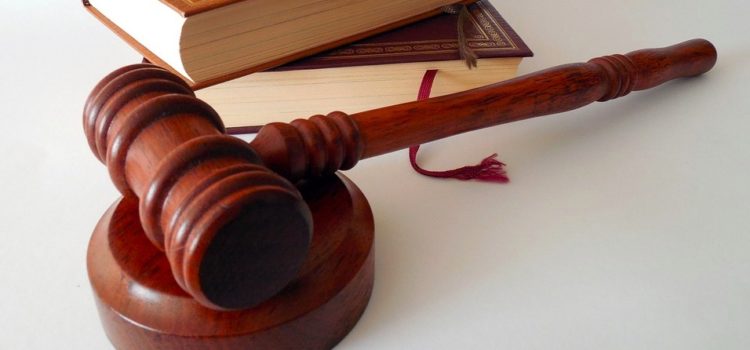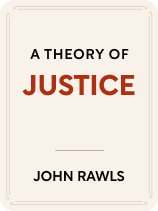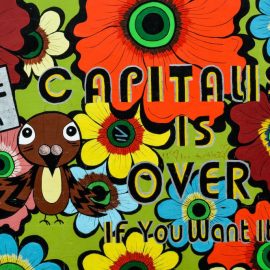

This article is an excerpt from the Shortform book guide to "A Theory of Justice" by John Rawls. Shortform has the world's best summaries and analyses of books you should be reading.
Like this article? Sign up for a free trial here.
What are John Rawls’s two principles of justice? How might each principle influence the rules and distribution systems of society?
Rawls’s principles of justice result from the original position. The principle of distributive justice states that everyone should have equal rights, liberties, and duties. The difference principle states that some inequality can be permitted in circumstances where it makes the least advantaged better off.
Keep reading to learn about Rawls’s principles of justice as fairness.
1. The Principle of Distributive Justice
Rawls’s principle of distributive justice states that everyone in society should have basic equal rights, liberties, and duties. This principle derives naturally from the original position, since everyone involved would want to guarantee they weren’t oppressed. To further explore Rawls’s principles of justice, we’ll examine Rawls’s definition of rights and liberties as well as how he says social institutions can resolve conflicts between different rights and liberties.
Defining Rights and Liberties
Rawls frames rights, liberties, and duties in terms of limits on actions: what people are (or are not) allowed or able to do. He doesn’t define every single right, liberty, and duty that he believes is just, suggesting instead that this is the job of social institutions. However, he does note several important examples: freedom of religion, freedom of speech, the right to equal political participation, and property rights. In addition, Rawls’s conception of political equality extends beyond detached formal rules to include the equal right to exercise political power (by holding office or voting in an election, for example). This right ensures that people who already have some degree of wealth and power don’t get a greater say in political decisions.
For example, a formal rule ensures that each citizen has one vote in an election. However, this doesn’t guarantee equality by itself—Prudence, who is wealthy, can spend far more money than the average citizen to organize people around her political platform and campaign for votes. In this situation, Prudence would, in practice, be able to exercise more political power than most. Therefore, Rawls believes the state must place limits on the role of wealth in political organization or provide resources to those with less so they too can organize around issues.
Rights, Liberties, and Conflicts
Sometimes, different rights and liberties will contradict each other, acknowledges Rawls—for example, if someone randomly threatens to kill a stranger on the street, the threatener’s right to free speech conflicts with the stranger’s right to personal safety. To address this conflict, Rawls says representatives in the original position would attach two additional rules to the first principle:
1) A society can restrict certain liberties but only if doing so creates greater liberty for everyone. For example, privacy laws restrict an individual’s liberty to spy on their neighbors, but these laws create a broader right to privacy for everyone in society. In addition, Rawls suggests that this rule makes it unjust for a majority in society to oppress a minority. While that may limit the right of the majority to freely exercise political power, it preserves many more crucial rights and freedoms of the minority.
Rawls acknowledges that in a real society, social and historical circumstances interfere with perfect equality—for example, a historically oppressed group might still struggle to obtain true equality even in a society that believes everyone should have equal rights. Or, a violent political faction might have fewer rights to express their views for the sake of public order. In these cases, Rawls suggests it’s the duty of society to continuously work toward the greatest overall liberty—addressing the largest injustices first and making decisions based on what makes everyone as equal and free as possible.
2) Some people can have less liberty than others if they consent to it. There are circumstances where people need others to act on their behalf. In this case, it’s just for an individual to entrust some of their liberty in a guardian—so long as the guardian rationally considers what the individual would want if they could act for themselves. For example, a coma patient needs (and presumably wants) someone to act on their behalf. Therefore, it’s just for someone they trust, like a doctor or family member, to temporarily act on their behalf, making decisions based on what they think the coma patient would want.
2. The Difference Principle
Rawls’s second principle argues that inequalities of wealth and political power are just under certain circumstances. We discussed two of these circumstances in Part 2:
- Unequal distributions of wealth and power must benefit everyone and must provide the greatest possible benefit to those with the least wealth and power.
- These inequalities come from jobs in society that everyone has equal opportunities to fill. They include public positions, like government bureaucrats, as well as private positions—everything from CEOs to dentists.
Rawls adds three rules to clarify his second principle:
Rule #1: Rights Have Priority Over Inequality
According to rule #1, unequal distributions of power and wealth aren’t just if they infringe upon people’s basic rights and freedoms. Rawls says that if there’s ever a time when universal rights and unequal wealth or power conflict, then society must prioritize rights. For example, an excellent leader has provided society with incredible benefits—so much so that many people want to make their leader an absolute dictator for life. While this increased inequality of power might provide society with the benefits of a skilled leader, it’s unjust because it would deprive everyone of their basic right to exercise political power.
Rule #2: Account for Talent and Class
Rule #2 states that to ensure equal opportunity, the state must account for differences in natural talent and social class. Rawls argues that society shouldn’t limit opportunities necessary for obtaining wealth and power (education, jobs, and so on) to those who already have wealth or to those who are naturally talented. The class a person is born into and their natural talents are determined by chance, and therefore shouldn’t decide moral questions of who gets what in society.
To account for differences in class, Rawls says the state must make education accessible to everyone—both in a technical or academic sense (medical school, for example) as well as in a cultural and experiential sense (an opportunity to network with practicing doctors, for example). To account for differences in natural talent, Rawls believes the difference principle must also apply to skilled versus unskilled labor—skilled laborers shouldn’t earn more than unskilled laborers, unless that would provide a greater benefit to those in the latter category.
Rule #3: Some Unequal Opportunity Is Just
Rule #3 states that unequal opportunity is just as long as it benefits those with fewer opportunities more than it burdens everyone else. Society can provide additional opportunities to the less fortunate who otherwise struggle to gain wealth and power. This is just so long as the benefit to the unfortunate outweighs the burden on the fortunate. For example, New Zealand’s parliament reserves specific seats for Māori citizens—a historically oppressed group indigenous to the island. Rawls might argue that this unequal opportunity is just since it benefits an underrepresented group (the Māori) more than it harms an overrepresented group (non-indigenous New Zealanders).

———End of Preview———
Like what you just read? Read the rest of the world's best book summary and analysis of John Rawls's "A Theory of Justice" at Shortform.
Here's what you'll find in our full A Theory of Justice summary:
- John Rawls's 1971 theory of justice as fairness
- A breakdown of Rawls's Original Position theory and framework
- The three duties every citizen has in a just society






